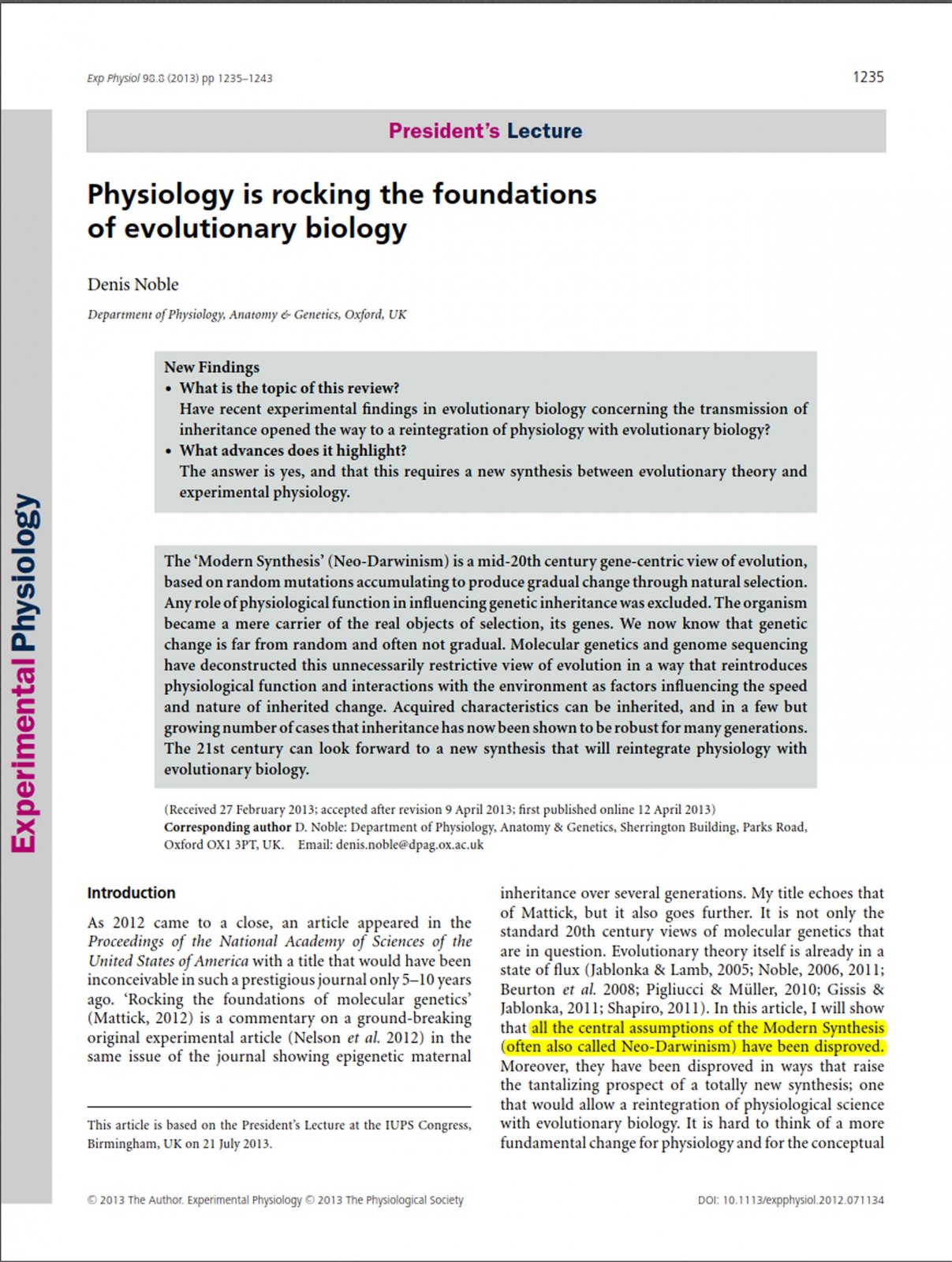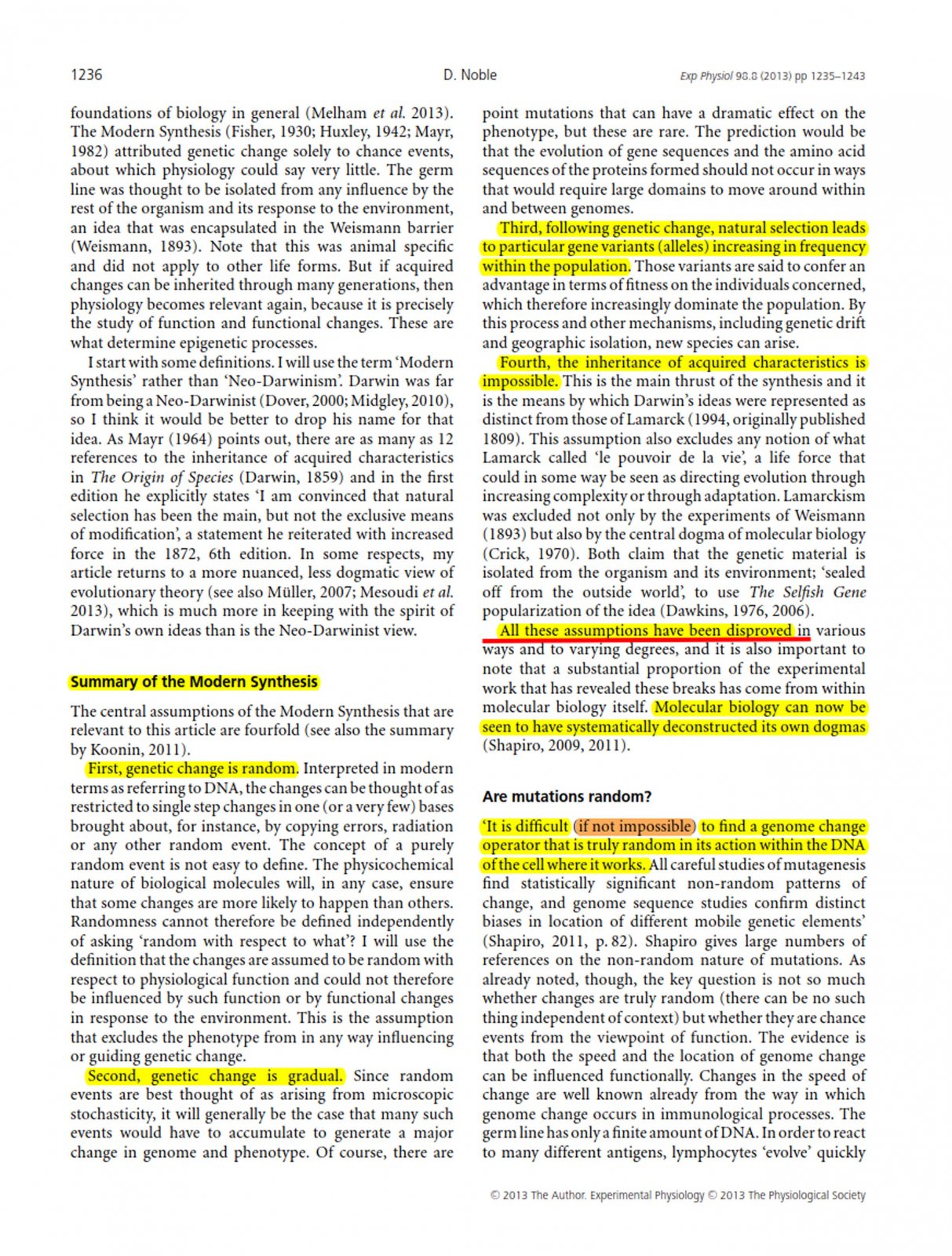My role/goal is to convey a message. Once I see signs that you got/understood the message, I’m done with my part. I don’t need you to acknowledge it; I only need you to understand it. Beyond that it’s on you.
Escape tactics/moving the goalposts are actually signs that the message was conveyed/understood, which would mean that I’m done with my part but if I see possible honest confusion, then I need to attend to it. I’ll ignore meaningless denial and try to focus on possible areas of confusion.
I only quote scientists of the highest caliber and I don't deceive myself/others by cherry-picking quotes to benefit a narrative. I wouldn’t deceive myself merely to get an acknowledgment from someone or illegitimately win an argument. I don’t need any acknowledgment. I only need to convey a message. That’s it.
Once properly conveyed, I’m done. You’re free to choose and responsible for your own choices. It’s on you but I do hope you would be able to see the truth as truth and falsehood as falsehood.
LOL. So to summarize, you claimed there were no examples of gradualism in the fossil record.
You didn’t understand a word of what I said, and I wonder why? You are not ignorant. But you as well as many others here are “closed-minded”.
Exceptions (whether or not perceived/considered as legitimate) never constitute a rule, do you understand?
If the prediction is literally astronomical number of random trials/errors that gets filtered down by selection to endless gradual advantageous steps along the assumed evolutionary route that allegedly gave rise to every single species alive or ever lived on earth, then “examples” absolutely don’t cut it. Do you understand?
When Gould and Eldridge asserted that gradualism is virtually
NONEXISTENT in the fossil record (see # 1256), it’s not because they are not aware of any examples such as yours, they sure do but examples are irrelevant to such conclusion, they made the assertion because evidence of the fossil record are by no means consistent or proportionate to the prediction entailed by gradualism, the fossil record doesn’t support gradualism. Now, when I say, “examples don’t cut it”, do you understand?
Punctuated equilibrium - Wikipedia
again, when I say challenged examples, it’s not at all about or limited to your example, I’m talking about all alleged examples of evolution. No exception. The argument/conclusion is based on the whole image not a vague single piece of the puzzle; it’s about the “Macro”, not the” Micro”.
Even If we consider your “especial” example from #1406, the author couldn’t establish ancestral relationships because the assumed ancestor which still lives today shows comparable degree of geographic variation to the variation seen in the lineage. Possible relationships are assumed, it's never decisive, even if it is, adaptations of gastropods will never transform it into anything other than variants of gastropods. Even if it did transform it into something other than gastropods (which is never the case), still, an exception can never prove a rule. Your example doesn’t prove anything, regardless of your example, the rule remains that gradualism (the most fundamental assumption of the alleged random evolution) is virtually
NONEXISTENT in the fossil record". Do you understand?
You first tried to wave them away by saying they were "challenged". But when I asked "by whom", you dropped that and switched to saying they didn't include speciation events
First of all, I said examples of evolution are challenged by scientists, again think “Macro” not “Micro”. (See #1864, item 5). Second, I didn’t say anything about speciation events. It’s only your imagination due to your lack of understanding.
Semantics can be very misleading. I do acknowledge “speciation” but
what is “speciation”? Or more precisely
what is “species”? It’s definitely controversial. Did you ever hear of the "species problem" or the "species crisis”?
Speciation is mainly understood as the loss of ability of interbreeding, another definition of species is a classification containing organisms that are physically similar. So, if a variant loses the ability of interbreeding yet continues to be physically similar, is it really another species? If the variants were brought together to interbreed artificially, would the offspring be sterile/short-lived or fertile?
Speciation never results anything other than variants of the same species. It’s always a limited adaptation and never a transformation. Galapagos finches will always be finches, humans on different geographical areas may exhibit different adaptation with significantly different characteristics with respect to colors, length or body style/type, yet they all remain “Homo sapiens" and will never transform to anything else other than "Homo sapiens".
The point is, what we consider as speciation is merely limited adaptation that can be associated with loss of the ability of interbreeding, but the result is always physically similar variants of the same species.
Variants of dogs even through artificial breeding will never be anything other than dogs. If we try to artificially breed hybrids such as tions and ligers, it will always be sterile and short-lived (
a dead end). It can never be a new different species.
The main problem with the theory is the alleged randomness of mutation. In the real world, we never see numerous random errors that emerge then get filtered down by selection as hypothesized by the ToE. Adaptation is not random; the changes always benefit the organism.
A classic example in the teaching of evolution is the alleged evolution of the peppered moth. An increase of air pollution during the industrial revolution was associated with increased frequency of dark-colored moths, as their camouflage matches the polluted background better. When pollution was reduced, the light-colored form again predominated.
Examples of “Industrial melanism” were observed/confirmed and considered as evidence of evolution through random mutation+natural selection. But the conclusion is false.
There was never any observation/evidence of numerous random colors that got filtered down by selection to eliminate all random light colors and keep only dark colors to achieve better camouflage, similarly when pollution was reduced, only the appropriate light color emerged without any evidence of numerous random colors that got filtered by selection.
There was never any evidence of random change. Neither in the adaptation of peppered moth nor the adaptation of any other organism, there are no random mutations.
The wiki article said, “instance of
directional color change in the moth population as a consequence of air pollution”. A random change could be any change of any characteristic; not necessarily a "color change" but the observed adaptation of the moth was specifically a purposeful change of color for better camouflage and not any random color but rather the correct color that emerged in a relatively very short time. A random change may or may not emerge but “Industrial melanism” is always a directed
predictable change that always benefits the moth.
Mutations are never random; it’s always directed for the benefit of the organism. See # 1245
Darwin's Illusion | Page 63 | Religious Forums
Organisms don’t evolute, organisms adapt. The adaptation never transforms one species into another; the result is always a variant of the same species.
LOL....what?

You've been touting the EES as a majority and widespread view, and saying it's been subjected to "dogmatic hostility", but after it's pointed out that the EES is merely a reshuffling and addition of different mechanisms for evolution, suddenly you're "not concerned" about what it is?
That's hilarious.
Not at all, go back and read #911. It’s not going anywhere.
I never said the EES is a widespread view, I said that the necessity of a major revision or entirely replacing the ToE is a widespread view simply because all central assumptions of the ToE (modern synthesis) are proven false. How is this problem gets resolved in the future is not my concern (possibly by another myth that eventually gets disproved), the point is that
the ToE that is being taught and accepted blindly is already proven false. The acceptance of it is merely a matter of a baseless choice. Do you understand?
See # 781 & #1864.
Are you not keeping track of the topic? You claimed that if a journal publishes a paper, it means the journal endorses the material in the paper. Being involved in the review and publication process, I know that's not true, and I provided examples of journals saying exactly that ("just because we publish a paper, doesn't mean we endorse its contents").
A disclaimer is merely intended to minimize exposure to legal liability. Scientific journals do control what is allowed to be published. We shouldn’t argue about this.


